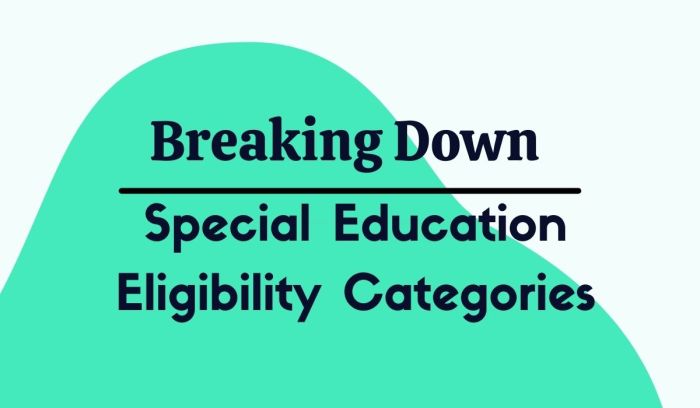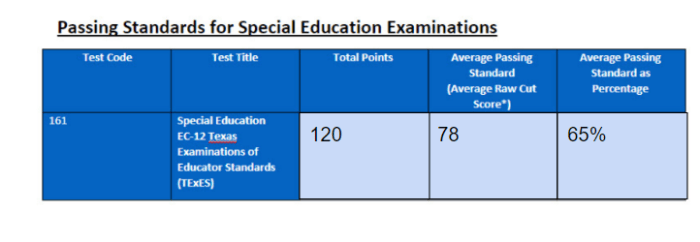Special education supplemental vs special education ec-12 – Special education supplemental and special education EC-12 are two distinct approaches to providing support for students with disabilities. This comparison will delve into the definitions, scope of services, funding mechanisms, eligibility criteria, delivery models, and outcomes of each approach.
1. Definitions and Key Concepts

Special education supplementalrefers to additional educational services provided to students with disabilities who require support beyond what is typically offered in general education settings. Special education EC-12, on the other hand, encompasses a comprehensive range of educational services designed to meet the unique needs of students with disabilities from early childhood through high school.
The primary distinction between the two concepts lies in the scope and intensity of services provided. Special education supplemental focuses on providing targeted interventions to address specific learning or developmental challenges, while special education EC-12 offers a more comprehensive approach that includes individualized instruction, assistive technology, and other supports to ensure students’ academic and functional success.
2. Scope and Services: Special Education Supplemental Vs Special Education Ec-12

Scope of Services for Special Education Supplemental
- Targeted interventions for specific learning or developmental challenges
- May include speech therapy, occupational therapy, physical therapy, or counseling
- Focus on addressing individual needs
Scope of Services for Special Education EC-12
- Comprehensive educational services from early childhood through high school
- Includes individualized instruction, assistive technology, and other supports
- Focus on ensuring academic and functional success
3. Funding and Eligibility
Funding Mechanisms for Special Education Supplemental
- Typically funded through state and local sources
- May also receive federal funding through grants or programs
Funding Mechanisms for Special Education EC-12
- Primarily funded through federal and state sources
- IDEA (Individuals with Disabilities Education Act) provides significant funding
Eligibility Criteria for Special Education Supplemental
- Students must have a documented disability that impacts their educational performance
- Services are typically provided for a specific period of time or until the student’s needs are met
Eligibility Criteria for Special Education EC-12
- Students must meet the definition of disability under IDEA
- Services are provided for the duration of the student’s educational career
4. Delivery Models
Delivery Models for Special Education Supplemental
- Provided in a variety of settings, including schools, clinics, or homes
- May be provided individually or in small groups
- Focus on addressing specific learning or developmental challenges
Delivery Models for Special Education EC-12
- Typically provided in general education classrooms with support services
- May also be provided in special education classrooms or resource rooms
- Focus on ensuring academic and functional success
5. Outcomes and Effectiveness

Outcomes of Special Education Supplemental, Special education supplemental vs special education ec-12
- Data suggests that special education supplemental can improve student outcomes
- Studies have shown positive impacts on academic achievement, social skills, and behavior
Comparison of Outcomes between Special Education Supplemental and Special Education EC-12
- Research indicates that both special education supplemental and special education EC-12 can be effective in improving student outcomes
- The choice of service depends on the individual needs of the student
Top FAQs
What is the difference between special education supplemental and EC-12 services?
Supplemental services are targeted interventions provided outside of the regular classroom, while EC-12 services provide comprehensive support throughout a student’s educational journey.
Who is eligible for special education supplemental services?
Students who require additional support beyond what can be provided in the regular classroom.
How are special education supplemental services funded?
Supplemental services are typically funded through a combination of federal, state, and local sources.